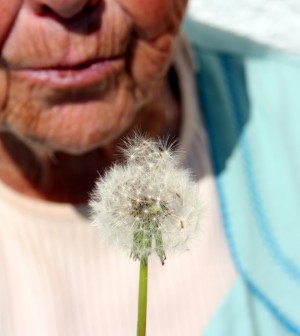- Are You Making This Expensive Thermostat Error This Winter?
- Recognizing the Signs of Hypothyroidism
- 10 Strategies to Overcome Insomnia
- Could Artificial Sweeteners Be Aging the Brain Faster?
- Techniques for Soothing Your Nervous System
- Does the Water in Your House Smell Funny? Here’s Why
- Can a Daily Dose of Apple Cider Vinegar Actually Aid Weight Loss?
- 6 Health Beverages That Can Actually Spike Your Blood Sugar
- Treatment Options for Social Anxiety Disorder
- Understanding the Connection Between Anxiety and Depression
Doctor Shares Tips for Preventing Falls Among Seniors


Numerous factors increase the risk of falls as people age, but there are ways to reduce that risk, a doctor says.
Blood pressure drugs can cause problems such as dizziness when going from sitting or lying down to standing, said Dr. Jason Rice, a primary care internist at Loyola University Health System in Maywood, Ill.
“If you are taking blood pressure medication, there may be a few moments of unsteadiness when you get up because the medicine blocks a mechanism that can cause a brief drop in blood pressure. This can be a fall risk,” he said in a Loyola news release.
“It’s important to always stand up slowly and get your bearings before walking. Also, staying hydrated helps to prevent drops in blood pressure,” he advised.
Another factor that can cause dizziness is an age-related reduction in the elasticity of blood vessels, which can affect blood flow.
“Without the squeezing of the blood vessels, blood flow does not return to the heart from distant parts of the body as effectively, especially from the legs. This poses a problem for people when they are changing positions and fighting gravity. Make sure to stand up slowly and hold on to a stable surface before walking,” Rice said.
Dizziness and falls can be caused by low blood sugar, especially among people with diabetes. If you’re using blood sugar-lowering medications, be sure to take them with an adequate meal in order to prevent your blood sugar from dropping too low, according to Rice.
“It’s always important for diabetics to check their blood sugar level, but especially if they have unusual symptoms. Low blood sugar can be treated immediately with fruit juice, but this should be discussed with a physician to ensure there isn’t a problem that needs to be addressed,” Rice advised.
Poor vision is another age-related problem that increases the risk of falls, because eyesight plays an important role in balance. Older adults should get regular vision checks, Rice recommended.
“In all of these cases, taking your time, being aware of your surroundings and assessing your stability before walking are key to preventing falls,” he concluded.
More information
The U.S. National Institute on Aging has more about falls and older adults.
Source: HealthDay
Copyright © 2026 HealthDay. All rights reserved.










